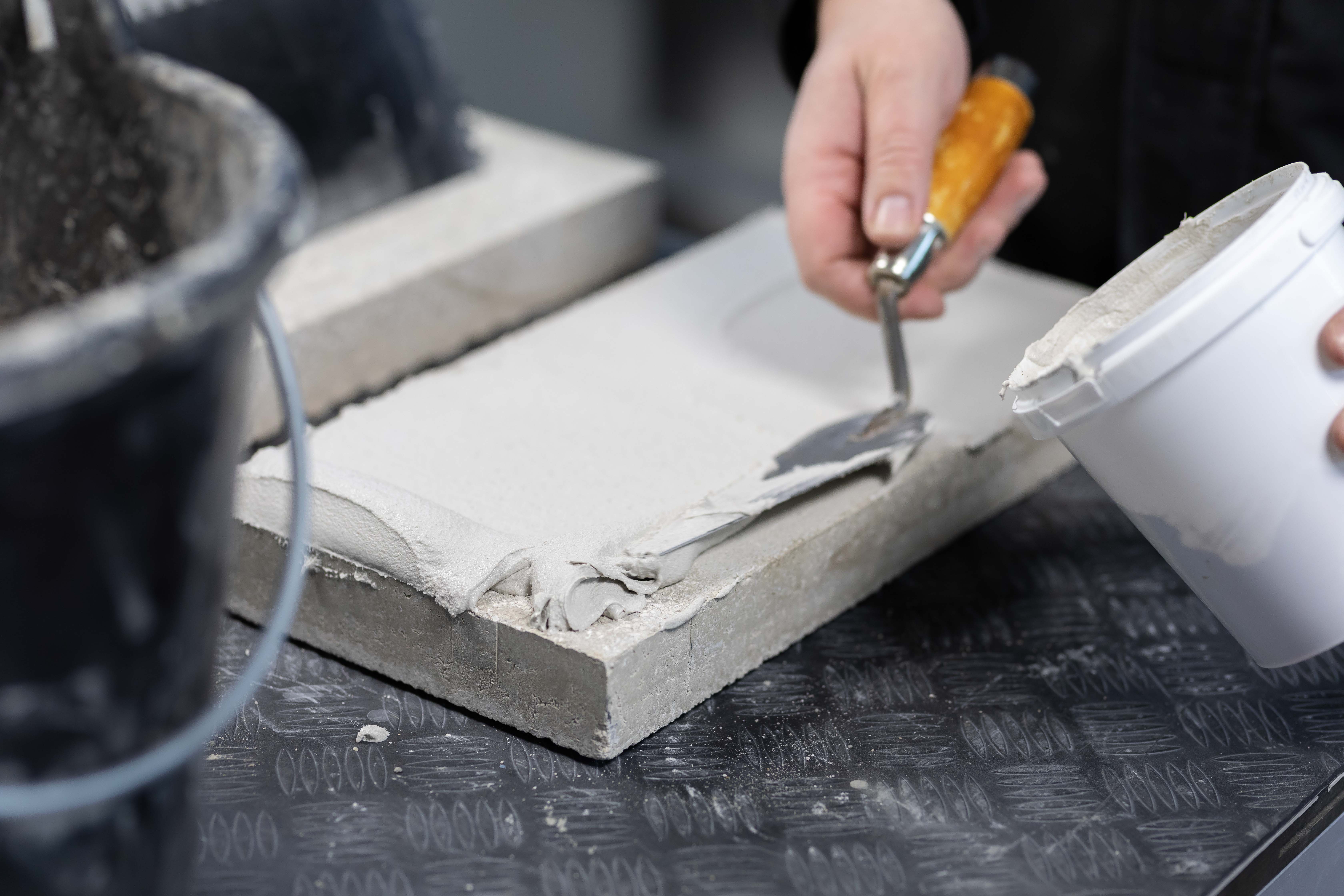
As the European Coatings Show kicks off in Nuremberg this week, we’ve been reflecting on the market and the developments we are seeing.
Dry-mix mortars need to be easy to use, safe, clean, robust, durable, good to look at and quick to harden and dry – essentially high performance, high quality and highly adaptable. Low carbon credentials are becoming increasingly important as the construction world is called to measure and reduce its emissions.
This need for ambitious decarbonation strategies in the construction sector has accelerated plans by dry-mix producers to reduce their carbon footprint and put sustainability at the top of their agenda over the past few years. From manufacturing to delivery and later recovery of materials on jobsites, every aspect is being looked at to reduce environmental impact. The use of our low-carbon technologies in dry-mix mortars has accelerated in an effort to reduce the construction industry’s CO2 footprint.
At Ecocem we have continued to develop and expand our range of low carbon high performance technologies specifically for the dry-mix mortars market and increasingly we are partnering with customers and co-suppliers.
The growing use of EPDs (Environmental Product Datasheet) by both suppliers and dry-mix producers is a very positive sign. It provides tangible evidence of the dry-mix market’s commitment to transparency on sustainability and environmental impact. EPDs are essential when making choices and differentiating between mortars with the same technical performance (LEED, BREEAM, HQE). Providing EPDs for all products, is a way for dry-mix producers to clearly demonstrate sustainability credentials, supported with detailed data. This requires contribution and commitment from suppliers, producers, and certification.
Focusing now on raw materials, we are seeing a trend towards local sourcing and using durable, recycled, recyclable materials, with low VOC and low carbon dry-mix mortars.
The percentage of recycled materials such as recycled sands and fines from demolition waste and recycled glass and ashes, being integrated into dry-mix mortars is increasing. Using these materials brings its own challenges, from recovery on sites to managing their impact on formulations – yet it is essential to delivering a more sustainable construction industry.
Using durable mortars capable of resisting carbonatation, abrasion and stringent environments also brings environmental benefits, and this is even more the case with technical mortars (concrete repair, prevision grouting, waterproofing, roadworks) and industrial floors.
Increasingly the circular economy demands that particular attention is paid to the recyclability of mortar at the end of its life. This is an area where there is clearly scope for improvement.
Using less product is also essential. Mortars with the capacity to cover larger areas with the same volume of product when compared with traditional mortars of the same class are a recent market development and we can expect to see more of this. An example of this is a lightweight single-buttering tile adhesive. Where previously this would have required a 25kg bag, the same task now only requires 15kg, delivering a 40% savings just in terms of product quantity. These products increasingly use less water, essential in our water poor world. Finally, since they are lighter, there is also a reduction in transport emissions.
Reducing the carbon footprint of dry-mix mortars is directly linked to the reduction of clinker-based cements in formulation. Ecocem’s low carbon mineral binders emit between six and twenty times less CO2 than standard clinker-based cements. Ecocem technologies for C2 tile adhesive can reduce its carbon footprint by more than 50 % compared with traditional C2 clinker-cement based tile adhesives. They also deliver improved open times and better adhesion strength under water where required, providing low carbon alternatives without compromising on quality or performance.
Ecocem technologies can be used in a wide variety of dry-mix mortar applications including flooring compounds, tile grouts, wall and façade coatings, masonry, and technical mortars (concrete repair, waterproofing, grouting, roadworks) for some up to 70% reduction in their carbon footprint.
We will continue to use our technologies to enhance the low carbon performance of dry-mix mortars, though research and innovation with our academic partners and co-suppliers. Contact us here to find out more.
Ecocem has obtained a Technical Evaluation of Products and Materials (Evaluation Technique de Produits et Matériaux, or ETPM) in the French market for ACT1 – the first version of our groundbreaking scalable cement technology.
In his latest blog, Ecocem’s award-winning research scientist, Simon Blotevogel, speaks about research on Electric Arc-Furnace (EAF) slags, collaboration being the key to innovation, and how we are at a critical moment in our mission to decarbonise the cement industry.